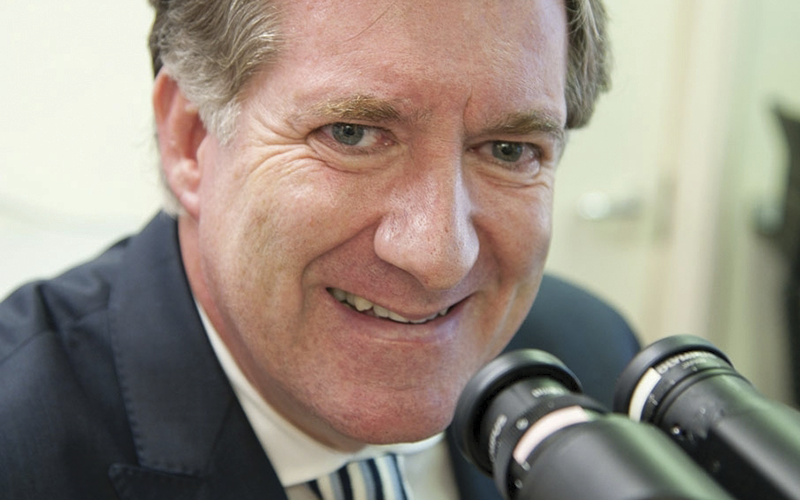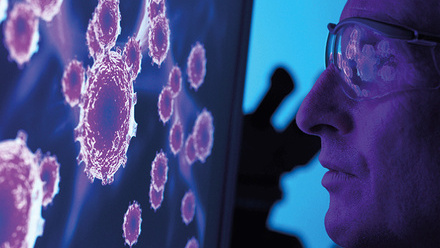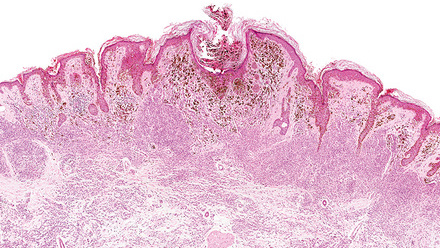My Lab: Dermatology Diagnosis

The laboratory provides support for St John’s Institute of Dermatology, which is one of the world’s leading centres for patients with skin diseases, and the trust’s plastic surgery department and GPs with skin-related investigations. As a specialist laboratory, it processes around 14,000 routine cases a year.
This includes approximately 3,000 complex referral cases from across the UK and internationally. It includes a fully automated immunocytochemistry service, generating around 24,000 tests a year and employing a panel of over 120 antibody tests. We support the provision of Mohs micrographic surgery techniques.
This involves investigating the removal of skin cancers, most commonly basal cell carcinomas, squamous cell carcinomas and lentigo maligna melanomas, commonly, although not exclusively, from facial sites. The procedures are also extremely effective, with successful removal of treated cancers and with a cure rate of 95% to 98%, depending on anatomical site.
Although my laboratory services deal with skin cancers predominantly, we also perform extensive histological investigations into alopecia and trichogram assessments for patients with hair loss disorders. Alopecia is a common problem, but the root causes are not always understood.
This growing specialism is one that generates interest nationally. The department has a keen interest in both lymphoma and melanoma diagnostic and research work. It is a major referral centre for cutaneous T celllymphoma, receiving referrals from all over the country.
The department also supports an active research interest in melanoma, assessing prognostic indicators and supporting
assessments of treatment strategies, such as BRAF investigations supporting molecular assessments of paraffin wax tissue curls of patient blocks.
No laboratory would function well without a well-trained and dedicated workforce. The department has 15 scientific staff with a full spectrum of grades, from band 2 MLA to band 8 BMS. It has a reputation for innovation and scientific endeavour and this is something that any laboratory lead would be proud of, and I am!


